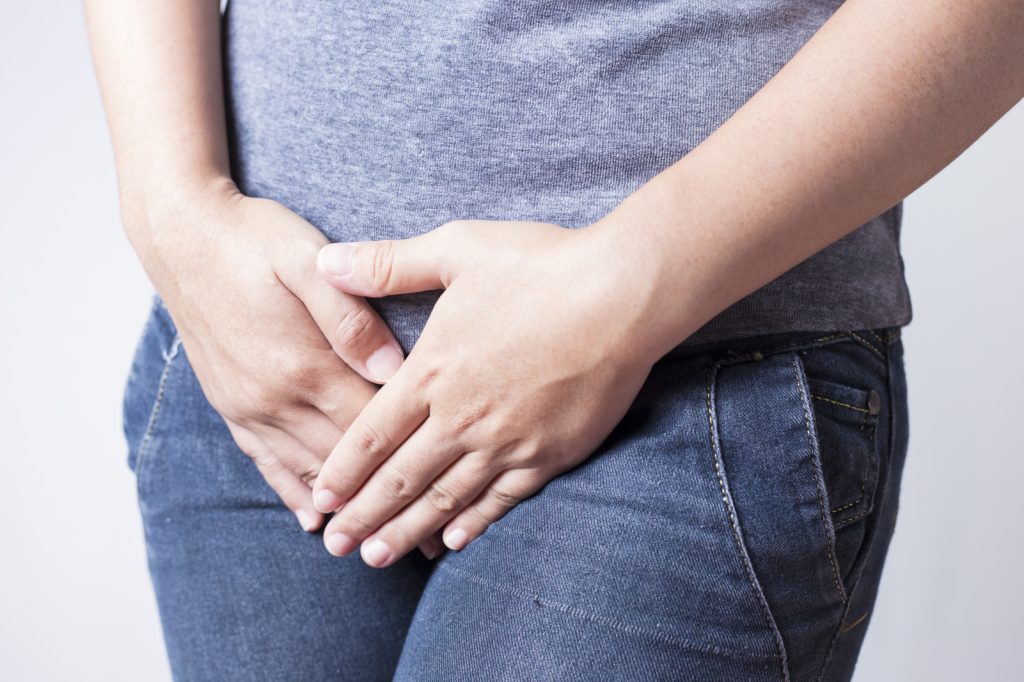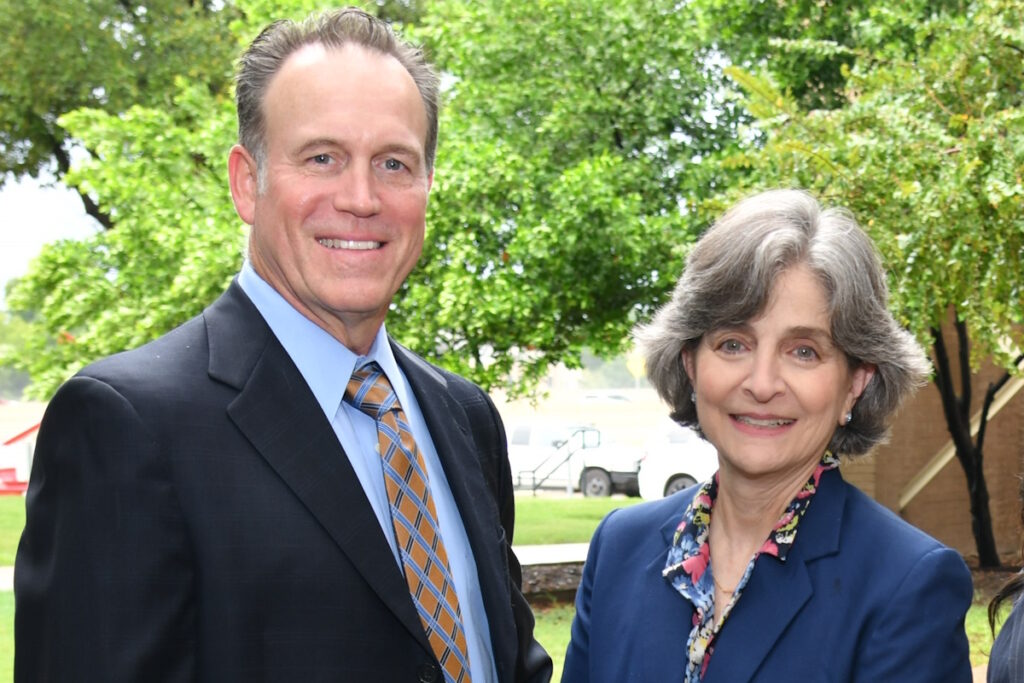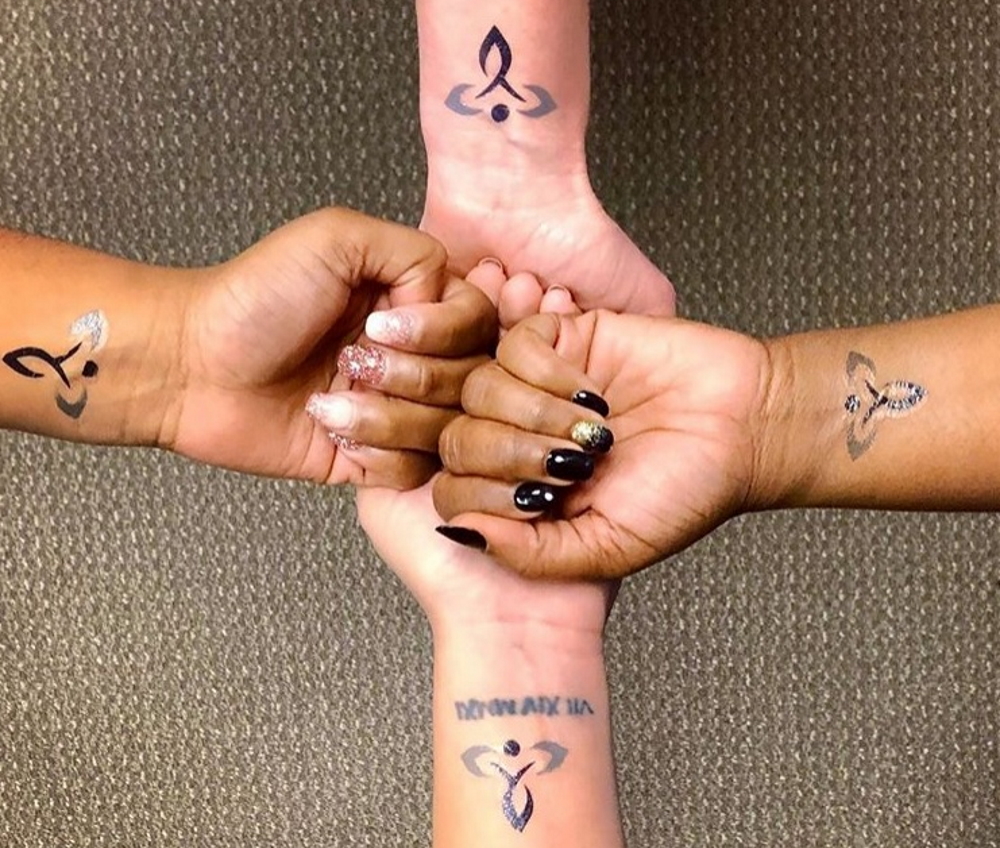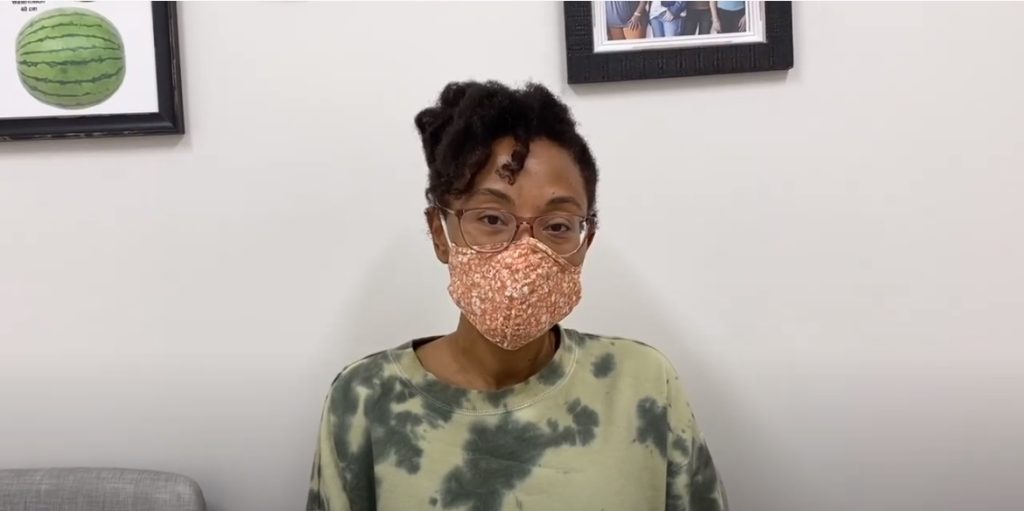For many women, coping with uterine fibroid symptoms such as heavy bleeding, bloating, and frequent urination can become a part of everyday life. Chawon suffered from fibroid symptoms for years. Heavy, prolonged periods with clots caused anemia and fatigue. She felt bloated from constipation, and she couldn’t drink a glass of water without having to run to the restroom soon after quenching her thirst. Plus, she regularly took acetaminophen to manage her pelvic pain and lower back pain.
Chawon ’s Fibroid Symptoms
- Prolonged periods with clots
- Lack of energy, anemia and fatigue
- Bloated from constipation
- Constant need to empty her bladder
- Pelvic pain and lower back pain
Chawon’s fibroid symptoms kept her from participating in some of her favorite activities, including running. Between the constant need to empty her bladder, and the lack of energy caused by the heavy bleeding, running just wasn’t an option anymore.
What Are Uterine Fibroids?
Fibroids are benign tumors that develop from the muscle tissue of the uterus. They can vary in size, location, and rate of growth. It is estimated that 70-80% of all women develop fibroids between the ages of 35 and 54. Some women are asymptomatic and unaware of their fibroids. Other women, like Chawon, experience a variety of fibroid symptoms that interfere with their lives.
Common fibroid symptoms may include:
- Heavy and/or Long Periods
- Pelvic Pain
- Frequent urination
- Painful Intercourse
- Back Pain
- Constipation
- Bloating
Frequent Urination Can Be a Fibroid Symptom

One of the most problematic symptoms for Chawon was frequent urination. As fibroids grow, they can expand the uterus and put pressure on the bladder. With the uterus taking extra space, the bladder has less capacity for urine. Thus, the bladder needs to empty more often. Women with bladder issues caused by fibroids not only need to go more often, but often more urgently. It can be harder to “hold it in” until reaching a restroom facility, and incontinence may result. Plus, frequent urination causes repeated interruptions during work, activities, family time and sleep.
In addition to frequent urination, women with bladder-related fibroid symptoms also experienced:
- Bowel or bladder dysfunction
- Difficulty urinating despite the feeling of a full bladder
- Heaviness in lower abdomen or pelvis
- Debilitating pelvic pain and pressure
- Urgency incontinence
- Feelings of bloating or constipation
- Feeling of rectal fullness
Chawon knew it was time to address her frequent urination and other fibroid symptoms with her doctor. She learned that she had numerous fibroids of multiple sizes. Her doctor recommended a hysterectomy to remove the fibroids and her uterus. However, invasive fibroid surgery was not this patient’s first choice for treatment! First, Chawon did not want to lose her uterus. Second, she did not want to go through the long recovery process, nor the possible side effects. She considered myomectomy but heard that it doesn’t always get every fibroid. Before committing to fibroid removal surgery, Chawon wanted to see if there were any other options.
Finding the Right Fibroid Doctor Goes a Long Way

With the help of her supportive husband, Chawon sought options for uterine fibroid treatment. Through their research, she found out about uterine fibroid embolization (UFE). She also had the opportunity to talk to a former UFE patient of Fibroid Institute and learn about the experience.
Chawon and her husband both felt that UFE at Fibroid Institute was the best solution to her fibroid symptoms. They were intrigued that a minimally invasive fibroid treatment existed without the recovery period required of traditional fibroid removal surgery, nor was it necessary for Chawon to lose her uterus.
Shortly thereafter, Chawon had a telehealth consultation with Founder and Medical Director of Fibroid Institute of Dallas, Dr. Suzanne Slonim. It was an emotional appointment. Chawon cried tears of worry and frustration over her fibroid symptoms, and tears of joy at the possibility of minimally invasive UFE. She was so happy that she was a candidate for a fibroid solution without major surgery. Plus, she felt how compassionately Dr. Slonim and the staff treated their patients. She was confident that she found a highly experienced fibroid doctor in Dallas to perform her UFE.
90% of UFE Patients Find Fibroid Symptom Relief
UFE is a minimally invasive procedure to treat uterine fibroids without surgery. It has an effective rate of over 90% in relieving fibroid related symptoms. Using image-guided interventional radiology, during UFE small particles are introduced through the uterine arteries into the fibroid vessels, blocking the blood flow to the fibroids. By cutting off blood flow to all fibroids, the fibroids shrink and die. With UFE there is no incision—just a tiny catheter in your wrist. Plus, UFE recovery is shorter than traditional fibroid surgery.

After Chawon’s UFE procedure, she experienced some pain and cramping but adhered to Fibroid Institute’s post-procedure protocol. She felt well prepared for what to expect during recovery. “For me, the pain is worth the gain I know that I’m going to have. It really is worth it. You have to put in something to get the results that you want. And I know that I’m going to have the results that I want.”
And Chawon is getting the results that she wants. Her fibroid symptoms are vastly improved! She doesn’t feel bloated, and she is sleeping through the night without getting up to use the restroom. Her frequent urination is gone. She is no longer constipated but, rather, having more frequent bowel movements. She can have a glass of water without having to run to the rest room right away.
Relief from Fibroid Symptoms Is Possible!
At Fibroid Institute, we understand how uterine fibroids can impact your life. We also understand that fibroid symptoms may run the gamut and be difficult to explain. Fibroid Institute, with Dallas and Houston fibroid doctors, has helped thousands of women find relief from fibroid symptoms.
Chawon recommends that other women seeking relief from their fibroid symptoms learn about alternatives to hysterectomy. “Do your research and find the best fibroid doctor that does UFE. For me it was Dr. Slonim and Fibroid Institute.”
Begin your #fibroidfree journey with a simple 10-15 minute phone screening to see if you qualify for UFE. After the screening, if you are eligible for UFE, you can schedule your onsite or telehealth consultation. Get started now by completing the form below or by calling our Dallas fibroid clinics at 214-838-6440 or Houston fibroid clinics at 713-903-3733.
This information is not a substitute for professional medical advice. Prior to starting any new treatment or if you have questions regarding a medical condition, always seek the advice of your doctor or other qualified health provider.
Fibroid Institute Texas serves the Dallas and Houston areas including Addison, Carrollton, Plano, Frisco, Craig Ranch, McKinney, Allen, Fort Worth, Grand Prairie, HEB, Arlington, Hutchins, Irving, Duncanville, DeSoto, Cedar Hill, Lancaster, Cockrell Hill, Highland Park, University Park, Park Cities, Garland, Mesquite, Richardson, Dallas, Sherman, Houston, Sugar Land, Katy, Webster, Clear Lake, The Woodlands, Universal City, Spring, Kingwood, Stafford, Conroe, Texas City, Cypress, League City, Bellaire, and more.

